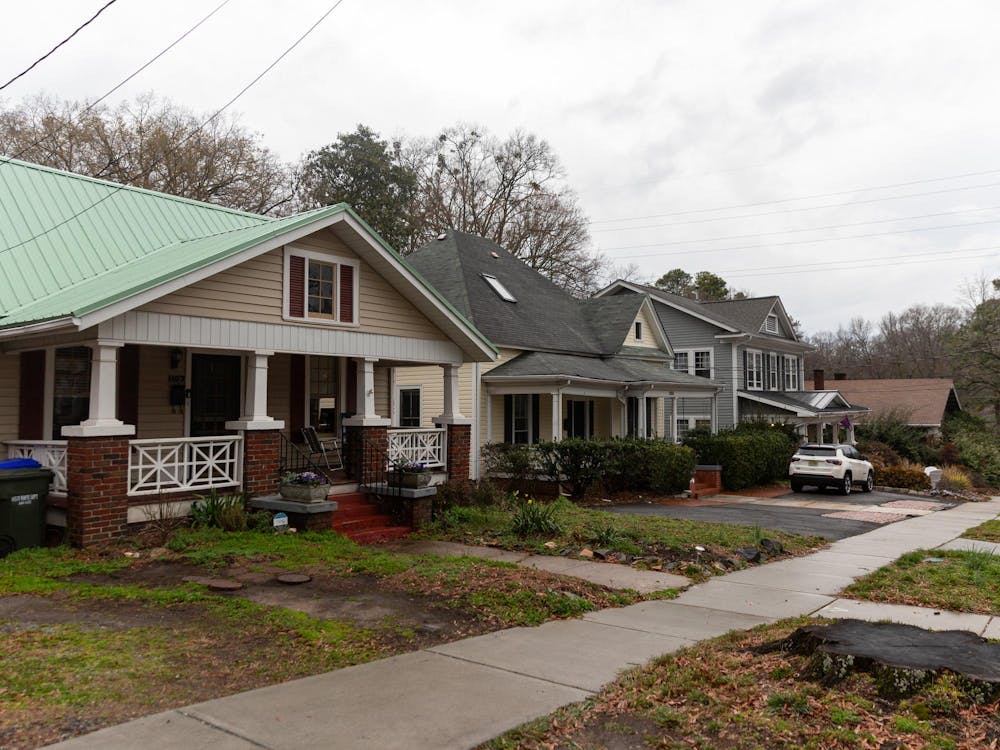Increase in Police Responses to Off-Campus Greek Life Activities at Duke University
During the 2023-24 academic year, Duke students engaged in off-campus Greek life have witnessed a surge in police interventions at various events, particularly peaking in January and extending through February.
This emerging trend has sparked apprehension among Duke students intending to participate in rush events, pledge activities, or organize gatherings for Greek organizations.
A member of Kappa Alpha Theta, who opted to remain anonymous, expressed concerns about the heightened anxiety surrounding potential police presence at parties following recent incidents. The individual highlighted the increased apprehension among attendees due to recent citations and police interventions.
Many students perceive this escalation as unprecedented, with some attributing the surge in police activity to the introduction of the “Good Neighbor Program,” an initiative aimed at enhancing communication between Duke University and neighboring communities.
Elinor Landess, the director of off-campus and community life at Duke, emphasized the program’s objective of providing essential resources and fostering responsible citizenship among students residing off campus, including those affiliated with Greek organizations. The collaboration with Durham neighborhoods and law enforcement aims to cultivate a harmonious living environment for all community members.
Enforcement Actions in the Spring Semester
In January, several fraternities, including Alpha Delta Phi, Alpha Epsilon Pi, Sigma Chi, Pi Kappa Phi, and the all-male selective living group Wayne Manor, received noise complaints leading to police visits and subsequent arrests.
Reports from the Durham Police Department indicated a disproportionate increase in calls from concerned neighbors regarding specific fraternity houses since August 2023.
Members recounted incidents from January 18 and 19, where police citations were issued for various violations, including creating fire hazards and underage drinking. Despite initial charges, all citations were eventually dropped, prompting Sigma Chi to cease hosting events at the location of the previous incident.
Representatives from Alpha Epsilon Pi and Sigma Chi, along with the Durham Interfraternity Council, refrained from commenting on the events of that night.
Student Perspectives
While some students, like Ben Maschler, a first-year pledging Alpha Epsilon Pi, downplayed the impact of police interventions, others, such as Kaitlyn Williams from Durham’s Delta Gamma chapter, expressed apprehension. Williams highlighted concerns about potential legal repercussions, particularly affecting students of color within Greek organizations.
The increased police presence has raised uncertainties among students considering fraternity involvement, with some apprehensive about the implications of recent events on their decision to join Greek life.
Despite differing views on the long-term effects of heightened police scrutiny, students generally acknowledge the temporary nature of the current situation and the enduring appeal of Greek social events.
Community Engagement Initiatives
The implementation of the Good Neighbor Program, which fosters collaboration between Duke University and neighboring communities, has coincided with the recent surge in police responses. This program aims to enhance communication channels between the university, off-campus students, and partner neighborhoods, where many fraternity residences are situated.
While the program seeks to engage students in promoting positive community relations, some students perceive a disconnect between Duke students and Durham residents, attributing it to the relocation of Greek organizations off campus.
The disaffiliation of Greek life from the university has led to Greek-affiliated residences being situated in residential neighborhoods, potentially contributing to strained relationships with local residents.
In conclusion, the evolving dynamics between Duke students, Greek organizations, and surrounding communities underscore the need for constructive dialogue and collaborative efforts to foster a harmonious living environment for all stakeholders.
Halle Vazquez | Staff Reporter
